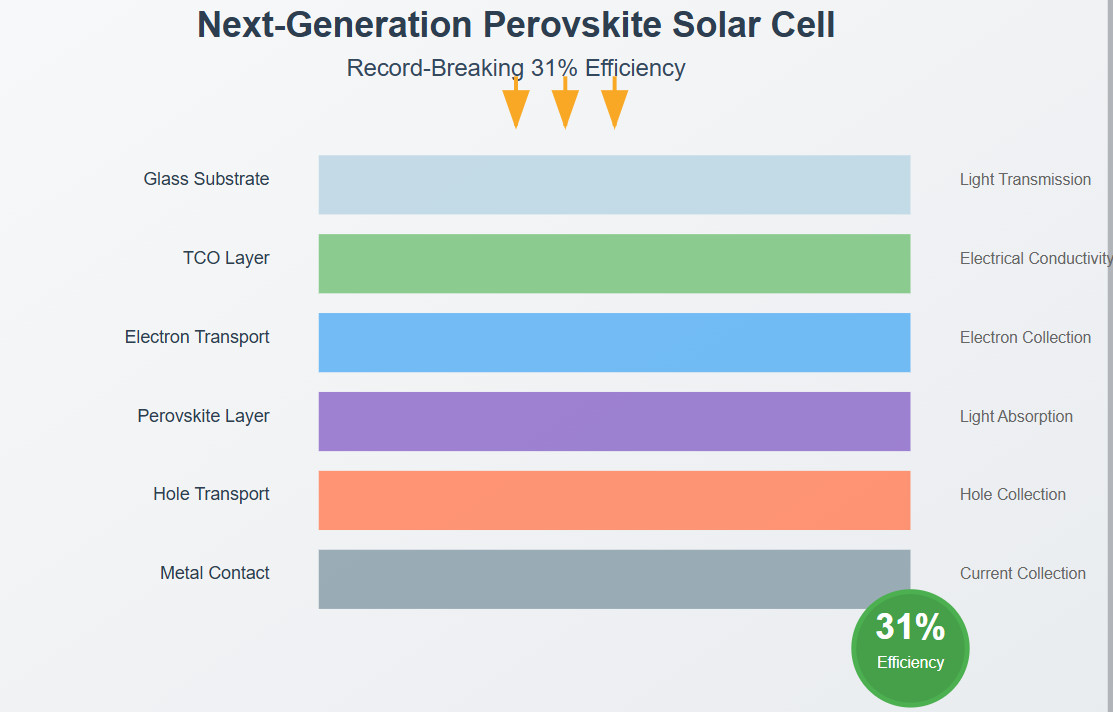Why is living sustainably crucial? Have you ever thought about what we can do as individuals to make a real difference in the world around us? Sustainable living considers the well-being of our planet and future generations. It’s not just about recycling or buying reusable bags; it goes much deeper. By adopting sustainable practices, we can reduce waste, save energy, and even money.
Plus, it helps protect our environment for future generations. This article will explore sustainable living’s concept, from energy conservation at home to making eco-friendly choices when shopping. We’ll also discuss the benefits of this lifestyle on both a personal level—health and budget—and on a community and global scale, where our collective actions make a huge impact. Let’s discover how small daily habit changes can lead to a more sustainable future for ourselves and our planet.
Understanding Sustainable Living and Its Components
Sustainable living incorporates simple yet effective practices into our daily routines to make a positive environmental impact. First, reducing energy consumption is key – this includes unplugging electronics when not in use and using energy-efficient appliances. Second, it’s important to reduce, reuse, and recycle to minimize waste.
Another aspect involves sourcing locally grown foods and opting for a plant-based diet to decrease the agriculture and meat industries’ carbon footprint. Adopting eco-friendly habits such as using reusable bags and bottles instead of disposables also makes a significant difference. By following these practices, we can protect our planet and enhance our personal well-being and future generations’.
How to create a balanced, eco-friendly meal plan for a sustainable lifestyle?
Maintaining a balanced and environmentally conscious diet can be challenging, but with careful planning and creativity, we can make it happen.
First, remember that a balanced diet includes various food groups – proteins, fruits and vegetables, whole grains, and healthy fats. Source these foods from local farmers’ markets or cooperatives to reduce carbon emissions from long-distance transportation. Consider eating seasonally to ensure maximum nutrient content and reduce energy consumption while supporting local agriculture.
Second, focus on plant-based proteins such as lentils, beans, and quinoa. These have a smaller environmental footprint than meat production. If including animal products, select ethically sourced, locally farmed meats or poultry from pasture-raised animals.
For fruits and veggies, grow your own if possible, or check for community gardens. When buying produce, select minimally packaged items or those grown with sustainable farming practices.
For whole grains like quinoa, farro, and brown rice, purchase them in bulk to minimize waste, or shop at stores with Bring Your Own Container policies. Cook large portions and freeze future meals for efficiency.
Incorporate healthy fats by reaching for olive oil in glass containers, unshelled nuts to decrease plastic, or plant-based spreads like avocado or hummus.
Meal planning is key. Stock your fridge with veggies, whole grains, and protein options for effortless weekly meal prepping – curries, stir-fries, burrito bowls – the options are limitless! Freeze certain meals or ingredients to minimize waste. Utilize older produce first, following the ‘first-in-first-out’ rule, and preserve excess ingredients by canning, drying or dehydrating for future meals.
This approach ensures a well-balanced diet while minimizing your environmental footprint.
How can one reduce single-use plastics at home through daily habits?
Reducing single-use plastics at home starts with simple daily habits. First, use reusable containers and produce bags instead of disposables. Glass, BPA-free plastic jars, silicone, or cloth bags serve the eco-friendly and cost-effective purpose.
Additionally, shop smarter by planning weekly meals, listing needed items, and getting provisions from your local grocer or farmers’ market. This reduces packaging waste and extra store trips.
Certain household products can help minimize single-use plastics, like dish soap tablets or bars instead of liquids, refillable water bottles or pitchers, natural fabric or bamboo swabs as cotton bud alternatives.
When investing in reusable items, consider longevity and versatility. A durable water bottle or lunchbox reduces disposable items and saves money long-term.
Practical Tips for Implementing Sustainable Living in Your Daily Life
How can I save energy and decrease my carbon footprint on a budget?
1. Use smart power strips and timers for appliances that consume power when plugged in but turned off, like computers and chargers. Turning them off completely saves electricity and cash.
2. Upgrade to Energy Star certified appliances and LED lights whenever possible. While an initial investment, they pay off through monthly energy bill savings and potential rebates.
3. Make small adjustments: use natural light when possible, air dry laundry instead of using a dryer, and take shorter showers. Proper insulation and weatherizing also improve energy efficiency.
These minor changes don’t require significant investments but collectively make a big difference.
How can meal planning minimize food waste and packaging use?
Meal planning on a weekly basis allows you to think through needed ingredients and use them effectively, minimizing spoilage and redundancy. Use seasonal produce for fresher meals and less reliance on frozen or prepackaged options.
Plan one-pot meals like quinoa bowls or chili that incorporate multiple components, reducing packaging needs while providing several meals. Batch cook certain items like stocks, broths, and sauces when frequently in the kitchen.
Plan for perishable ingredients by following the ‘first-in-first-out’ rule, placing older items at the front for use first. Meal planning apps or calendars serve as visual aids, reminding you when ingredients reach their prime.
Where can I find eco-friendly alternatives for everyday items?
Many local stores now offer more eco-conscious alternatives; some specialize exclusively in sustainable solutions!
For groceries, check out “Packit” – their reusable container sets make storing and transporting groceries easy while reducing single-use packaging.
For produce bags, try “Fruit & Spice,” which sells gorgeous, handwoven cotton or reusable net bags for a stylish, guilt-free grocery run.
As for toothbrushes, the health food store “Vibrant Life” stocks bamboo brushes with biodegradable bristles – benefiting both your mouth and the planet.
Honoring this quest for sustainable products nurtures not only ourselves but also the environment through responsible shopping habits.
Addressing Common Challenges and Obstacles to Sustainable Living
While many urban professionals wish to live sustainably, we often face common roadblocks. Let’s explore three impediments and propose solutions.
First, the financial aspect: Upfront investments for sustainable technologies like solar panels or energy-efficient appliances may seem daunting. However, potential long-term savings in utilities and taxes can outweigh the initial cost. Communicating with energy consultants, utility companies, or financial institutions can provide information about incentives, grants, subsidies, and payback schemes to offset expenses.
Second, time constraints: With long work hours, keeping up a sustainable household while managing family commitments can feel challenging. Adapting meal planning routines focused on simple, plant-forward home-cooked dishes or reusing grocery containers can contribute to sustainability without significantly increasing workload.
Finally, lack of space might hinder the ability to create an urban garden or compost setup. Creating an indoor vertical garden, using terracotta pots strategically, or exploring local community gardens can help integrate greenery without sacrificing space.
By addressing these financial, time, and space challenges, urban professionals can effectively incorporate sustainable practices.
What are effective ways to maintain sustainable living despite a hectic work schedule?
Maintaining green habits amidst hectic work schedules can be daunting, but it’s achievable! Here are thoughtful approaches:
1. Plan and prepare meals ahead: Meal prepping for workdays helps reduce reliance on single-use containers and last-minute grocery trips.
2. Reexamine commute choices: Consider carpooling, public transportation, or biking/walking instead of driving to reduce emissions and save money.
3. Make conscious purchasing decisions: Refuse single-use items and invest in reusable alternatives like water bottles, grocery bags, and multifunctional household tools.
4. Adopt time management techniques: Use methods like the Pomodoro Technique or time blocking apps to maximize efficiency while minimizing energy-consuming mindless web browsing.
5. Batch cook on weekends: Cook larger portions of healthy meals, divide and store in individual glass containers for a cost and time-efficient weekday strategy.
These suggestions can help maintain sustainability amidst professional obligations.
How can you minimize single-use plastic usage on a small budget?
Minimizing single-use plastic reliance in a modest living space with financial constraints is possible through a few key habits. First, employ reusable shopping bags and refillable water bottles to eliminate many daily plastic containers. Second, swap traditional plastic containers for glass or stainless-steel options – durable and often cheaper long-term.
Third, opt for bars instead of packaged items like soap or shampoo, as a single bar can be utilized multiple times. Lastly, get creative with reusing or recycling items – yogurt cups and similar plastics can be repurposed for organization or crafts. Effective ways to decrease single-use plastic usage with a limited budget!
What hinders urban professionals from practicing sustainable living at home and how can these barriers be overcome?
Busy city dwellers often face barriers preventing them from incorporating eco-friendly habits at home. First, there is a perceived lack of time or resources, with careers and family commitments prioritized over sustainability. However, many green practices can actually save money long-term by reducing utility usage and disposable products.
Another challenge is the belief that green living comes with additional financial costs. Education and exposure to sustainability resources can bridge this knowledge gap and enable informed choices.
The complex nature of modern urban living can also lead to a disconnect from the environment and a lack of awareness about one’s impact. Seeking community resources and building networks of like-minded individuals can provide encouragement and local knowledge for effective implementation.
By adopting a mindset of conscious consumption, simplifying sustainable habits, and actively seeking accessible resources, progress towards eco-friendly practices is possible even in the busiest urban lifestyle.
What are effective ways to maintain sustainable living despite a hectic work schedule?
Juggling a busy workload with the desire to adopt sustainable living practices at home can be challenging. Neglected household tasks like composting, recycling or reducing energy consumption may result from hectic schedules. Preparing homemade meals from locally sourced ingredients can also be time-consuming.
To address these challenges, implement simple strategies. Prioritize chores by scheduling them on specific days or delegating to family members. Incorporate energy-saving techniques like using public transport, turning off unused appliances, and opting for power-efficient products into daily habits.
Create a list of go-to recipes – easy, minimal-ingredient meals that can be prepared quickly. Simplifying routines and finding shortcuts like meal planning or buying produce in bulk will make adhering to sustainable practices more manageable despite a busy schedule.
Maintaining balance between work and upholding sustainable living habits at home is possible by focusing on efficient practices, smart time management, and thoughtful decisions accommodating career responsibilities and environmental concerns.
How can one reduce single-use plastic usage in a budget-friendly small apartment?
Managing single-use plastic consumption in an urban dwelling on a budget is achievable with mindful choices. First, assess current daily plastic usage, then choose reusable alternatives mindfully.
Bring reusable containers for bulk items instead of pre-packaged goods. Shop for produce at local farmers’ markets to avoid plastic bags. Invest in durable, washable silicone bags to replace sandwich bags.
Replace bottled water with refillable options like filtered pitchers or bottles with built-in filters. Swap plastic disposable cups with washable glassware, mugs, or ceramic dishes.
Invest in jars or reusable containers instead of single-serve sizes. Use cloth produce bags instead of plastic. Opt for reusable glass or stainless steel instead of flimsy plastic food storage containers.
Making these simple swaps significantly reduces single-use plastic usage in a budget-friendly, sustainable way.
The Path Forward for a Sustainable Future
Living sustainably is crucial. It helps the environment and saves you money long-term. Reducing our carbon footprint is one significant step – turn off lights when leaving a room or take public transportation instead of driving alone. Be mindful of home energy consumption. Lead by example, ensure paperless offices with digital documentation and record-keeping systems. Encourage employees to work remotely to minimize commuting emissions.
But it’s not just about internal actions; hold ourself accountable for making a positive community and planetary impact. Sustainable living is within everyone’s reach, and every small step makes a difference. By taking responsibility for energy usage, supporting local initiatives, and holding ourselves accountable, we contribute to a more sustainable future. And remember: Sustainability saves money by being mindful of resources.











오피전국 오피에약 사이트
오피전국 오피에약 사이트
오피전국 오피에약 사이트
https://cheongjumsg.clickn.co.kr/
오피전국 오피에약 사이트
https://cheongjumsg.clickn.co.kr/
오피전국 오피에약 사이트
오피전국 오피에약 사이트
https://cheongjumsg.clickn.co.kr/
오피전국 오피에약 사이트
오피전국 오피에약 사이트
오피전국 오피에약 사이트
오피전국 오피에약 사이트
오피전국 오피에약 사이트
오피전국 오피에약 사이트
오피전국 오피에약 사이트
오피전국 오피에약 사이트
오피박사
오피전국 오피에약 사이트
오피전국 오피에약 사이트
출장 홈케어 서비스로 집에서도 안전하게대전출장마사지를 후불제로 받을 수 있습니다.
출장 홈케어 서비스로 집에서도 안전하게대전출장마사지를 후불제로 받을 수 있습니다.
출장 홈케어 서비스로 집에서도 안전하게대전출장마사지를 후불제로 받을 수 있습니다.
출장 홈케어 서비스로 집에서도 안전하게대전출장마사지를 후불제로 받을 수 있습니다.
출장 홈케어 서비스로 집에서도 안전하게대전출장마사지를 후불제로 받을 수 있습니다.
출장 홈케어 서비스로 집에서도 안전하게대전출장마사지를 후불제로 받을 수 있습니다.
출장 홈케어 서비스로 집에서도 안전하게대전출장마사지를 후불제로 받을 수 있습니다.
출장 홈케어 서비스로 집에서도 안전하게대전출장마사지를 후불제로 받을 수 있습니다.
출장 홈케어 서비스로 집에서도 안전하게대전출장마사지를 후불제로 받을 수 있습니다.
출장 홈케어 서비스로 집에서도 안전하게대전출장마사지를 후불제로 받을 수 있습니다.
출장 홈케어 서비스로 집에서도 안전하게대전출장마사지를 후불제로 받을 수 있습니다.
출장 홈케어 서비스로 집에서도 안전하게대전출장마사지를 후불제로 받을 수 있습니다.
출장 홈케어 서비스로 집에서도 안전하게대전출장마사지를 후불제로 받을 수 있습니다.
출장 홈케어 서비스로 집에서도 안전하게대전출장마사지를 후불제로 받을 수 있습니다.
출장 홈케어 서비스로 집에서도 안전하게대전출장마사지를 후불제로 받을 수 있습니다.
출장 홈케어 서비스로 집에서도 안전하게대전출장마사지를 후불제로 받을 수 있습니다.
출장 홈케어 서비스로 집에서도 안전하게대전출장마사지를 후불제로 받을 수 있습니다.
출장 홈케어 서비스로 집에서도 안전하게대전출장마사지를 후불제로 받을 수 있습니다.
출장 홈케어 서비스로 집에서도 안전하게대전출장마사지를 후불제로 받을 수 있습니다.
출장 홈케어 서비스로 집에서도 안전하게대전출장마사지를 후불제로 받을 수 있습니다.
출장 홈케어 서비스로 집에서도 안전하게대전출장마사지를 후불제로 받을 수 있습니다.
출장 홈케어 서비스로 집에서도 안전하게대전출장마사지를 후불제로 받을 수 있습니다.
출장 홈케어 서비스로 집에서도 안전하게대전출장마사지를 후불제로 받을 수 있습니다.
출장 홈케어 서비스로 집에서도 안전하게대전출장마사지를 후불제로 받을 수 있습니다.
출장 홈케어 서비스로 집에서도 안전하게대전출장마사지를 후불제로 받을 수 있습니다.
출장 홈케어 서비스로 집에서도 안전하게대전출장마사지를 후불제로 받을 수 있습니다.
출장 홈케어 서비스로 집에서도 안전하게대전출장마사지를 후불제로 받을 수 있습니다.
출장 홈케어 서비스로 집에서도 안전하게대전출장마사지를 후불제로 받을 수 있습니다.
출장 홈케어 서비스로 집에서도 안전하게대전출장마사지를 후불제로 받을 수 있습니다.
출장 홈케어 서비스로 집에서도 안전하게대전출장마사지를 후불제로 받을 수 있습니다.
출장 홈케어 서비스로 집에서도 안전하게대전출장마사지를 후불제로 받을 수 있습니다.
출장 홈케어 서비스로 집에서도 안전하게대전출장마사지를 후불제로 받을 수 있습니다.
출장 홈케어 서비스로 집에서도 안전하게대전출장마사지를 후불제로 받을 수 있습니다.
출장 홈케어 서비스로 집에서도 안전하게대전출장마사지를 후불제로 받을 수 있습니다.
출장 홈케어 서비스로 집에서도 안전하게대전출장마사지를 후불제로 받을 수 있습니다.
출장 홈케어 서비스로 집에서도 안전하게대전출장마사지를 후불제로 받을 수 있습니다.
선물거래소
코인선물거래소
코인선물거래소
꽁머니 소통방
코인선물거래소
꽁머니 소통방
코인선물거래소
꽁머니 소통방
코인선물거래소
코인선물거래소
꽁머니 소통방
코인선물거래소
꽁머니 소통방
코인선물거래소
꽁머니 소통방
코인선물거래소
코인선물거래소
꽁머니 소통방
코인선물거래소
꽁머니 소통방
코인선물거래소
꽁머니 소통방
코인선물거래소
코인선물거래소
꽁머니 소통방
코인선물거래소
꽁머니 소통방
코인선물거래소
꽁머니 소통방
코인선물거래소
꽁머니 소통방
꽁머니 소통방
코인선물거래소
꽁머니 소통방
코인선물거래소
꽁머니 소통방
코인선물거래소
꽁머니 소통방
코인선물거래소
꽁머니 소통방
코인선물거래소
꽁머니 소통방
코인선물거래소
꽁머니 소통방
코인선물거래소
꽁머니 소통방
코인선물거래소
꽁머니 소통방
코인선물거래소
꽁머니 소통방
코인선물거래소
꽁머니 소통방
코인선물거래소
꽁머니 소통방
코인선물거래소
꽁머니 소통방
코인선물거래소
꽁머니 소통방
코인선물거래소
꽁머니 소통방
코인선물거래소
꽁머니 소통방
코인선물거래소
꽁머니 소통방
코인선물거래소
코인선물거래소
꽁머니 소통방
코인선물거래소
꽁머니 소통방
코인선물거래소
코인선물거래소
코인선물거래소
코인선물거래소
코인선물거래소
코인선물거래소
코인선물거래소
코인선물거래소
코인선물거래소
코인선물거래소
코인선물거래소
코인선물거래소
코인선물거래소
코인선물거래소
코인선물거래소
코인선물거래소
코인선물거래소
코인선물거래소
코인선물거래소
코인선물거래소
코인선물거래소
코인선물거래소
코인선물거래소
코인선물거래소
코인선물거래소
코인선물거래소
코인선물거래소
스포츠 중계 사이트
코인선물거래소
스포츠 중계 사이트
코인선물거래소
코인선물거래소
스포츠 중계 사이트
코인선물거래소
코인선물거래소
코인선물거래소
코인선물거래소
코인선물거래소
코인선물거래소
스포츠 중계 사이트
코인선물거래소
스포츠 중계 사이트
코인선물거래소
코인선물거래소
코인뉴스
코인선물거래소
코인뉴스
코인선물거래소
코인선물거래소
코인뉴스
코인선물거래소
코인뉴스
코인선물거래소
코인뉴스
코인선물거래소
코인뉴스
코인선물거래소
코인뉴스
코인선물거래소
스포츠중계
스포츠중계
EPL무료중계사이트
스포츠중계
스포츠중계
스포츠중계
스포츠중계
스포츠중계
스포츠중계
스포츠중계
스포츠중계
스포츠중계
스포츠중계
스포츠중계
스포츠중계
스포츠중계
스포츠중계
NBA중계
NBA중계
스포츠중계
스포츠중계
코인선물거래소
스포츠중계
스포츠중계
스포츠중계
코인 선물 거래소
스포츠중계
스포츠중계
NBA중계
NBA중계
코인선물거래소
스포츠중계
스포츠중계
선물거래소
선물거래소
here
코인선물거래소
here
스포츠중계
스포츠중계
스포츠중계
스포츠중계
선물거래소
Pingback: Building plan approvals to take less than 45 days - Esbecgroup
Howdy! I could have sworn I’ve visited this website before but after looking at some of the posts I realized it’s new to me. Regardless, I’m definitely delighted I stumbled upon it and I’ll be book-marking it and checking back frequently.
Good day! I could have sworn I’ve been to your blog before but after going through a few of the posts I realized it’s new to me. Anyways, I’m certainly happy I discovered it and I’ll be bookmarking it and checking back often!
There is definately a lot to know about this topic. I really like all of the points you have made.
Can I just say what a relief to discover someone who actually understands what they’re discussing over the internet. You actually realize how to bring an issue to light and make it important. More people really need to check this out and understand this side of the story. I was surprised you aren’t more popular given that you surely possess the gift.
Great article. I am experiencing some of these issues as well..
There’s certainly a great deal to know about this topic. I really like all the points you have made.
Very good article. I’m dealing with a few of these issues as well..
I’m amazed, I have to admit. Rarely do I encounter a blog that’s both equally educative and interesting, and let me tell you, you have hit the nail on the head. The issue is something too few men and women are speaking intelligently about. I am very happy I came across this in my search for something concerning this.
Hello there! This post could not be written much better! Reading through this article reminds me of my previous roommate! He continually kept preaching about this. I most certainly will send this post to him. Pretty sure he’ll have a great read. Many thanks for sharing!
Aw, this was a really good post. Spending some time and actual effort to generate a top notch article… but what can I say… I put things off a lot and don’t seem to get nearly anything done.
You made some really good points there. I looked on the net for more info about the issue and found most individuals will go along with your views on this website.
There is definately a great deal to know about this topic. I really like all the points you’ve made.
Howdy, I do believe your site could possibly be having web browser compatibility problems. Whenever I take a look at your website in Safari, it looks fine but when opening in IE, it’s got some overlapping issues. I merely wanted to provide you with a quick heads up! Besides that, great website.
I needed to thank you for this fantastic read!! I absolutely loved every bit of it. I’ve got you book-marked to look at new things you post…
Hello, I do believe your site could be having web browser compatibility problems. When I take a look at your blog in Safari, it looks fine however, if opening in IE, it’s got some overlapping issues. I merely wanted to provide you with a quick heads up! Besides that, fantastic website.
Way cool! Some very valid points! I appreciate you penning this post and the rest of the website is also really good.
Howdy! I just want to give you a huge thumbs up for the excellent information you have right here on this post. I’ll be coming back to your website for more soon.
Saved as a favorite, I really like your blog.
http://navote.ru/?p=14651
Greetings! Very useful advice in this particular article! It’s the little changes which will make the most significant changes. Many thanks for sharing!
Greetings, I think your site might be having internet browser compatibility problems.
Whenever I take a look at your web site in Safari, it looks fine however when opening in I.E., it’s got
some overlapping issues. I merely wanted to provide you with a quick heads up!
Besides that, wonderful site!
There’s certainly a great deal to learn about this subject. I love all the points you have made.
Официальное приложение доступно для 888starz скачать с официального сайта.
Having read this I thought it was really enlightening. I appreciate you spending some time and effort to put this informative article together. I once again find myself spending way too much time both reading and leaving comments. But so what, it was still worthwhile.
custom balloons with logo https://balloon-store-dubai.com
Excellent article! We will be linking to this particularly great content on our site. Keep up the great writing.
You should take part in a contest for one of the best sites on the web. I am going to highly recommend this blog!
I really love your site.. Great colors & theme. Did you create this website yourself? Please reply back as I’m hoping to create my very own blog and would love to find out where you got this from or what the theme is named. Kudos!
You’re so cool! I do not think I’ve truly read anything like that before. So great to discover somebody with unique thoughts on this issue. Seriously.. many thanks for starting this up. This site is one thing that is required on the internet, someone with a little originality.
Great post. I’m experiencing many of these issues as well..
This website certainly has all of the information and facts I wanted about this subject and didn’t know who to ask.
I blog frequently and I genuinely appreciate your information. The article has really peaked my interest. I am going to bookmark your blog and keep checking for new information about once per week. I subscribed to your Feed too.
Hey there! I just would like to give you a big thumbs up for the excellent information you’ve got here on this post. I will be coming back to your web site for more soon.
I’d like to thank you for the efforts you have put in writing this site. I am hoping to check out the same high-grade blog posts by you in the future as well. In fact, your creative writing abilities has inspired me to get my very own blog now 😉
Hello there! This post could not be written any better! Reading through this post reminds me of my previous roommate! He constantly kept preaching about this. I most certainly will forward this post to him. Fairly certain he will have a very good read. Thanks for sharing!
After looking into a number of the articles on your web site, I seriously appreciate your way of writing a blog. I book-marked it to my bookmark website list and will be checking back soon. Please check out my website too and let me know what you think.
I used to be able to find good advice from your articles.
You have made some decent points there. I looked on the web for more info about the issue and found most individuals will go along with your views on this web site.
You are so cool! I don’t think I’ve read anything like that before. So nice to discover another person with unique thoughts on this issue. Really.. many thanks for starting this up. This website is something that is needed on the internet, someone with a bit of originality.
Everything is very open with a very clear clarification of the issues. It was truly informative. Your site is very helpful. Many thanks for sharing!
Pretty! This was an incredibly wonderful article. Many thanks for supplying this information.
Your style is very unique compared to other people I’ve read stuff from. Thank you for posting when you’ve got the opportunity, Guess I’ll just bookmark this site.
This is a very good tip particularly to those fresh to the blogosphere. Simple but very precise information… Appreciate your sharing this one. A must read article!
When I originally commented I appear to have clicked on the -Notify me when new comments are added- checkbox and from now on every time a comment is added I recieve four emails with the exact same comment. Perhaps there is an easy method you can remove me from that service? Appreciate it.
Everything is very open with a very clear explanation of the challenges. It was truly informative. Your website is very helpful. Thank you for sharing.
After exploring a handful of the blog posts on your web site, I truly like your technique of writing a blog. I book-marked it to my bookmark website list and will be checking back soon. Please visit my web site as well and let me know what you think.
It’s hard to find experienced people for this subject, but you seem like you know what you’re talking about! Thanks
I could not refrain from commenting. Exceptionally well written.
Everything is very open with a really clear description of the challenges. It was definitely informative. Your website is useful. Many thanks for sharing!
Next time I read a blog, Hopefully it does not fail me as much as this particular one. After all, Yes, it was my choice to read through, but I actually thought you would have something interesting to talk about. All I hear is a bunch of whining about something you could possibly fix if you were not too busy looking for attention.
I would like to thank you for the efforts you have put in writing this blog. I’m hoping to check out the same high-grade blog posts by you later on as well. In fact, your creative writing abilities has encouraged me to get my very own blog now 😉
Having read this I believed it was very enlightening. I appreciate you spending some time and effort to put this article together. I once again find myself spending way too much time both reading and leaving comments. But so what, it was still worthwhile!
Excellent blog you have here.. It’s hard to find high-quality writing like yours these days. I really appreciate individuals like you! Take care!!
ремонт телефонов москва
This is a topic that’s close to my heart… Best wishes! Where are your contact details though?
Good info. Lucky me I ran across your blog by accident (stumbleupon). I’ve saved it for later!
I’d like to thank you for the efforts you have put in penning this site. I’m hoping to check out the same high-grade content from you later on as well. In fact, your creative writing abilities has encouraged me to get my very own website now 😉
Pretty! This was an extremely wonderful article. Many thanks for supplying this information.
May I simply say what a comfort to uncover someone who really understands what they are discussing over the internet. You definitely understand how to bring an issue to light and make it important. More and more people really need to look at this and understand this side of the story. I was surprised that you are not more popular because you definitely possess the gift.
It’s hard to find educated people about this topic, but you sound like you know what you’re talking about! Thanks
When I originally left a comment I appear to have clicked on the -Notify me when new comments are added- checkbox and from now on every time a comment is added I get four emails with the exact same comment. There has to be a means you can remove me from that service? Kudos.
I’m amazed, I must say. Seldom do I encounter a blog that’s both educative and entertaining, and let me tell you, you’ve hit the nail on the head. The problem is an issue that not enough men and women are speaking intelligently about. I am very happy I found this in my hunt for something concerning this.
There’s certainly a lot to learn about this issue. I love all the points you’ve made.
Excellent blog you have here.. It’s hard to find high quality writing like yours nowadays. I honestly appreciate individuals like you! Take care!!
Very nice write-up. I certainly appreciate this website. Thanks!
Nice post. I learn something totally new and challenging on blogs I stumbleupon on a daily basis. It’s always interesting to read articles from other writers and practice something from other web sites.
I used to be able to find good info from your blog articles.
I was very happy to find this page. I need to to thank you for ones time just for this wonderful read!! I definitely loved every little bit of it and I have you saved as a favorite to see new things on your web site.
Good information. Lucky me I recently found your blog by accident (stumbleupon). I have book marked it for later.
Excellent web site you have here.. It’s hard to find excellent writing like yours nowadays. I honestly appreciate individuals like you! Take care!!
Way cool! Some extremely valid points! I appreciate you writing this write-up plus the rest of the website is really good.
Aw, this was an exceptionally nice post. Spending some time and actual effort to generate a really good article… but what can I say… I procrastinate a lot and don’t manage to get nearly anything done.
This website was… how do I say it? Relevant!! Finally I’ve found something that helped me. Kudos!
That is a good tip particularly to those new to the blogosphere. Short but very precise information… Thank you for sharing this one. A must read post!
Everyone loves it when folks come together and share views. Great website, stick with it.
When I originally left a comment I seem to have clicked on the -Notify me when new comments are added- checkbox and now each time a comment is added I receive four emails with the same comment. There has to be an easy method you can remove me from that service? Cheers.
I blog often and I genuinely thank you for your information. The article has truly peaked my interest. I’m going to bookmark your blog and keep checking for new details about once per week. I subscribed to your Feed as well.
You are so awesome! I do not believe I’ve truly read through anything like that before. So wonderful to discover someone with a few unique thoughts on this topic. Seriously.. many thanks for starting this up. This web site is something that’s needed on the web, someone with a little originality.
I wanted to thank you for this great read!! I certainly loved every little bit of it. I’ve got you saved as a favorite to check out new stuff you post…
Great article. I’m facing many of these issues as well..
A fascinating discussion is worth comment. I think that you ought to write more on this topic, it might not be a taboo subject but typically people don’t discuss such subjects. To the next! All the best!
I blog often and I seriously thank you for your information. The article has really peaked my interest. I will bookmark your website and keep checking for new information about once a week. I subscribed to your Feed as well.
An intriguing discussion is worth comment. I do think that you should publish more on this issue, it may not be a taboo matter but generally folks don’t speak about these issues. To the next! Best wishes!
I’m amazed, I have to admit. Rarely do I come across a blog that’s both educative and entertaining, and let me tell you, you’ve hit the nail on the head. The problem is something that too few people are speaking intelligently about. I’m very happy I found this during my search for something relating to this.
An interesting discussion is worth comment. I do think that you need to write more on this issue, it may not be a taboo matter but typically people don’t discuss such subjects. To the next! Kind regards.
It’s hard to find experienced people about this subject, however, you seem like you know what you’re talking about! Thanks
I blog frequently and I genuinely thank you for your information. This great article has really peaked my interest. I will take a note of your site and keep checking for new information about once per week. I opted in for your Feed as well.
Howdy! I just would like to offer you a big thumbs up for the great info you have got right here on this post. I will be returning to your site for more soon.
Spot on with this write-up, I actually believe that this web site needs far more attention. I’ll probably be back again to read through more, thanks for the advice.
I want to to thank you for this great read!! I absolutely loved every bit of it. I have you book marked to check out new things you post…
Hello! I could have sworn I’ve been to this website before but after going through many of the posts I realized it’s new to me. Anyways, I’m definitely happy I found it and I’ll be bookmarking it and checking back frequently!
Everything is very open with a clear clarification of the issues. It was truly informative. Your website is very helpful. Many thanks for sharing!
I could not refrain from commenting. Perfectly written.
Way cool! Some very valid points! I appreciate you writing this write-up and also the rest of the site is extremely good.
Hello there! This article couldn’t be written any better! Looking through this article reminds me of my previous roommate! He always kept talking about this. I will forward this information to him. Fairly certain he’ll have a good read. I appreciate you for sharing!
Very interesting info!Perfect just what I was looking for!.
Pingback: Minimalism as Activism: How Living with Less Can Save the Planet - Esbecgroup
Pingback: The Minimalist Lifestyle Trend: Simplifying Your Life in a Complex World - Esbecgroup
Pingback: The Tiny House Movement - Esbecgroup